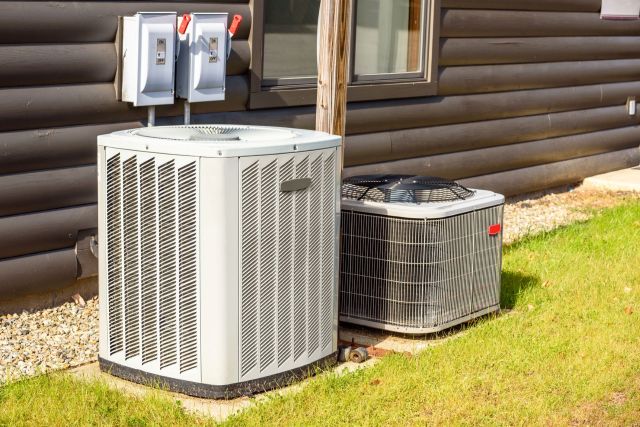Engineers develop next-gen tech that could usher in AC units of the future: 'Our prototype was the first in the world'

Slovenian researcher Jaka Tušek has solidified refrigeration science with a project that could replace liquid and gas technology used for more than a century .
A story on his progress was published by Horizon, the European Union's research and innovation magazine. The EU-backed work started in 2019 at the University of Ljubljana, where Tušek teaches.
His goal is to commercialize a unit that works without toxic refrigerants and cuts other pollution associated with cooling buildings in the increasingly warmer world. Air conditioning generates about 10% of global carbon dioxide gases, according to a 2020 BBC report. That's multitudes more than the aviation and shipping sectors. Horizon added that there are about 2 billion ACs — and growing — on the planet, drawing about 10% of the world's electricity.
Worse yet, common coolants used in ACs and fridges contain substances with a planet-warming power that can far exceed that of CO2. So, when they leak, it's a significant burden. Other toxic refrigerants were banned decades ago, all per Horizon.
"If one kilogram [2.2 pounds] of such a refrigerant evaporates into the atmosphere, it has roughly the same greenhouse effect as driving a car for about 30,000 kilometres" or 18,641 miles, Tušek said.
The breakthrough involves perfecting a cooling process that doesn't rely on reversible liquid-to-gas phase changes. Nickel titanium, an alloy also called nitinol, can transform phases while remaining solid. Crucially, the process doesn't harm the environment, according to the report.
Watch now: How bad is a gas stove for your home's indoor air quality?
"Simply put, when you put mechanical stress on them, they heat up; when you relieve it, they cool down," Žiga Ahčin, a project researcher, told Horizon. The concept is called elastocaloric cooling .
Heat waves are becoming more common, deadly, and costly, according to a recent study from sweltering California. The severe temperatures are linked by NASA and the United Nations to planet overheating, which is caused largely by burning fossil fuels for energy and transportation.
The hotter weather is even impacting academic performance , according to more government studies , prompting unique solutions.
Innovative designers working in an Indian desert have created a school that uses natural airflow and shadows to accommodate comfortable, cool learning in an area that can hit 120 degrees Fahrenheit. Efficient heat pumps are already available that can heat and cool your home with utility bill savings of up to $1,000 annually. That's not to mention thousands of bucks in tax breaks that can help lower the initial expense. Folks who have made the switch are reporting big wins .
| Do you think more places of worship should embrace clean energy? Yes — it sets a positive example Only if it saves money No opinion Absolutely not Click your choice to see results and speak your mind. |
Tušek and his team are continuing to perfect the nitinol approach. The experts found that compressing, instead of stretching, the wires greatly extends the lifespan, providing for what he calls a novel concept. Now the team needs to at least double the 15% efficiency rate to match traditional tech. But Tušek thinks he can hit 70% by implementing the compression method, all per Horizon.
"We proved that the lifespan of such materials can be practically unlimited," Tušek said. "At the same time, our prototype was the first in the world with a range of over 30 degrees Celsius, which is key for practical cooling and heating applications."
The team has partnered with other experts and an Irish tech company to bring the invention to market, perhaps within 10 years.
"It's cool to think that this technology could someday be everywhere," Ahčin told Horizon.

Join our free newsletter for weekly updates on the latest innovations improving our lives and shaping our future , and don't miss this cool list of easy ways to help yourself while helping the planet.
Engineers develop next-gen tech that could usher in AC units of the future: 'Our prototype was the first in the world' first appeared on The Cool Down .

Post a Comment for "Engineers develop next-gen tech that could usher in AC units of the future: 'Our prototype was the first in the world'"